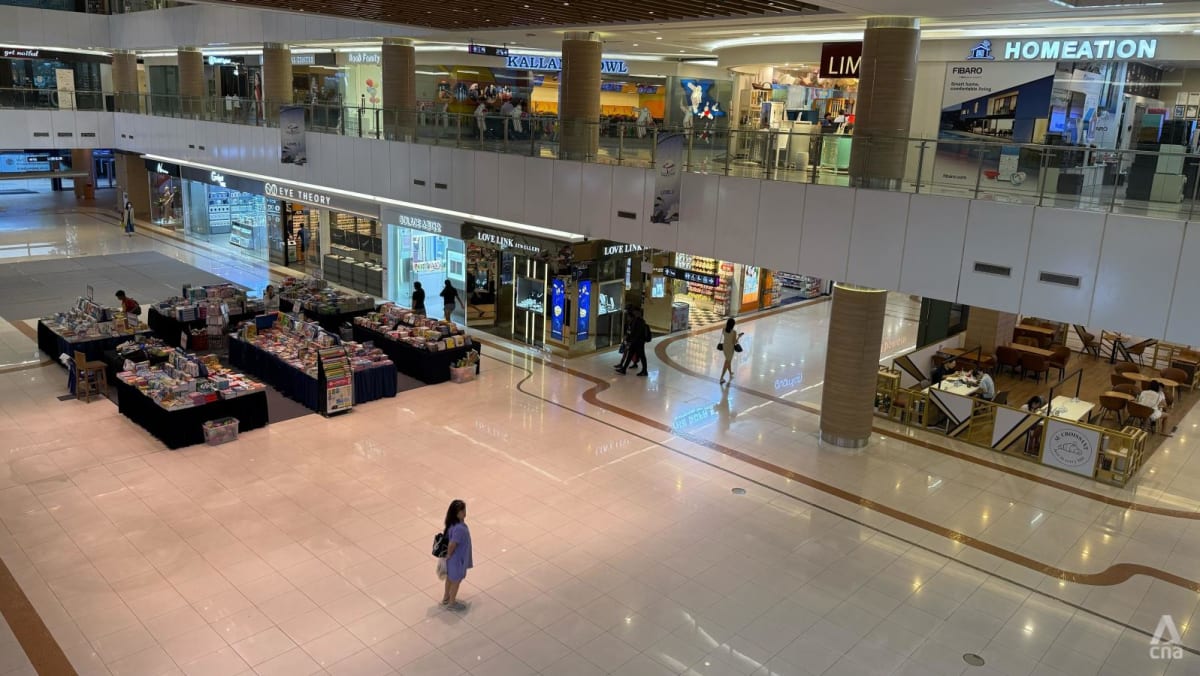DOMINO EFFECT
The simultaneous loss of two major anchors – the cinema and supermarket – has had a ripple effect, retail experts said.
“Mass marketers like supermarkets and cinemas often lead to destination retailing – where shoppers make that outlet the reason for visiting the mall, and the other smaller tenants then benefit from the foot traffic that is created,” said Dr Seshan Ramaswami, associate professor of marketing education at Singapore Management University (SMU).
When those anchors leave, it is “difficult to recover”, he added.
Dr Samer Elhajjar, a senior lecturer in marketing at the National University of Singapore’s (NUS) business school, said that this can lead to a “domino effect, where one exit leads to another”.
“The evolving retail landscape means consumers now demand more than just a place to shop,” he added. “They’re looking for immersive experiences, convenience and value. If a mall doesn’t evolve to meet those expectations especially when competitors nearby do, it becomes very difficult for tenants to remain viable.”
Jack Investments, which owns Leisure Park Kallang, declined to comment on the impact of the closures.
REGULARS AS “LIFE SUPPORT”
At Eye Theory, an eyewear business that has been at Leisure Park for 16 years, optometrist Giles Wang hopes customers will return despite losing the convenience of combining their visit with grocery runs.
“Cold Storage was here longer than us and we’re not sure what our business will be like without them. We’re relying on our regulars to keep coming back.”
The shop has sentimental value, he added. “We were here before Stadium MRT was up. Those days, the bigger malls wouldn’t accept us because we didn’t have deep pockets, but this mall did.”
A staff member at BedOrigin, which sells bedding products, said the store has been “much quieter” since Cold Storage’s closure, and now mainly depends on regular customers.
When CNA visited on a weekday evening in May, the staff member, who only wanted to be known as Ms Goh, said only nine people had entered the store that day – with fewer than five making a purchase.
“We’re not F&B. Some days, it’s zero (customers),” she said. “We’re just waiting and seeing. The economy has slowed down and buying power is not like before.”
NUS’ Dr Elhajjar said that depending solely on regular customers is an unsustainable strategy.
“The nature of retail and F&B today is such that customer churn is high, you constantly need new customers to offset those who naturally drop off due to changing habits, relocation or simply boredom.
“The real challenge is that without anchor tenants like Cold Storage to drive new footfall, the opportunity to attract new customers narrows dramatically,” he said.
“So while regulars are keeping some businesses afloat, they are essentially functioning as life support. If nothing changes structurally in the mall to reattract footfall or reinvigorate the space, this approach will eventually run out of steam.”
